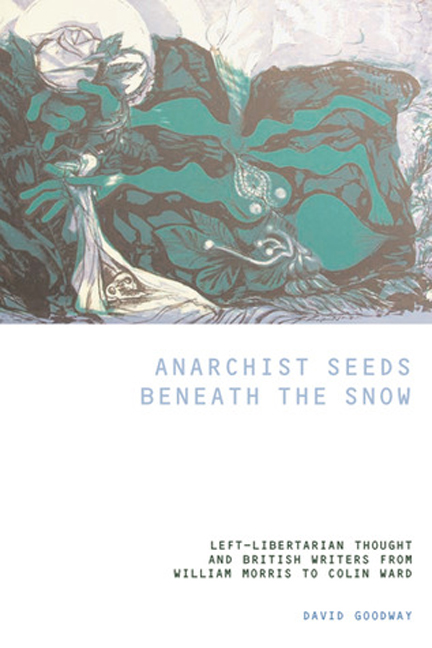 Anarchist Seeds Beneath the Snow
Anarchist Seeds Beneath the Snow Book contents
- Frontmatter
- Contents
- Dedication
- Acknowledgements
- Abbreviations
- 1 Introduction
- 2 Anarchism and libertarian socialism in Britain: William Morris and the background, 1880–1920
- 3 Edward Carpenter
- 4 Oscar Wilde
- 5 John Cowper Powys I: His life-philosophy and individualist anarchism
- 6 The Spanish Revolution and Civil War – and the case of George Orwell
- 7 John Cowper Powys II: The impact of Emma Goldman and Spain
- 8 Herbert Read
- 9 War and pacifism
- 10 Aldous Huxley
- 11 Alex Comfort
- 12 Nuclear disarmament, the New Left – and the case of E.P. Thompson
- 13 Christopher Pallis
- 14 Colin Ward
- 15 Conclusion
- Bibliography
- Index
14 - Colin Ward
- Frontmatter
- Contents
- Dedication
- Acknowledgements
- Abbreviations
- 1 Introduction
- 2 Anarchism and libertarian socialism in Britain: William Morris and the background, 1880–1920
- 3 Edward Carpenter
- 4 Oscar Wilde
- 5 John Cowper Powys I: His life-philosophy and individualist anarchism
- 6 The Spanish Revolution and Civil War – and the case of George Orwell
- 7 John Cowper Powys II: The impact of Emma Goldman and Spain
- 8 Herbert Read
- 9 War and pacifism
- 10 Aldous Huxley
- 11 Alex Comfort
- 12 Nuclear disarmament, the New Left – and the case of E.P. Thompson
- 13 Christopher Pallis
- 14 Colin Ward
- 15 Conclusion
- Bibliography
- Index
Summary
Colin Ward is one of the great radical figures of the past half-century, but his impact has been subterranean. His name is little mentioned by commentators and is scarcely known to the wider, intelligent public, even in his native Britain. A striking indication of his intellectual and institutional marginality is that he does not even possess a regular commercial publisher. In a Festschrift intended at least in part to remedy this unsatisfactory state of affairs, the editor, Ken Worpole, ably demonstrated the correspondence between Ward's concerns and contemporary debates and problems. I suspect that Ward himself would contend that this linkage can be made because of the commonsensical, realistic, necessary nature of anarchism as such (and not just his especial brand), if people could only see that, and its obvious relevance to the needs of the twenty-first century – and with this I would myself agree, it being one of the implicit themes of this book. But equally there can be no gainsaying the very real originality of Ward's oeuvre.
Colin Ward was born on 14 August 1924 in Wanstead, in suburban Essex, the son of Arnold Ward, a teacher, and Ruby Ward (née West), who had been a shorthand typist. He was educated at the County High School for Boys, Ilford, whose other principal claim to fame is that for thirty-eight years its English teacher was the father of the poet and critic, Kathleen Raine, who was to write venomously and extremely snobbishly of him, the school and Ilford in her first volume of autobiography. The young Ward was an unsuccessful pupil and left school at fifteen.
Arnold Ward taught in elementary schools, eventually becoming a headmaster in West Ham, which, although a county borough outside the London County Council, contained the depths of poverty of Canning Town and Silvertown. He was a natural Labour supporter and the family car (a Singer Junior) was much in demand on polling days.
- Type
- Chapter
- Information
- Anarchist Seeds Beneath the SnowLeft-Libertarian Thought and British Writers from William Morris to Colin Ward, pp. 309 - 325Publisher: Liverpool University PressPrint publication year: 2006
